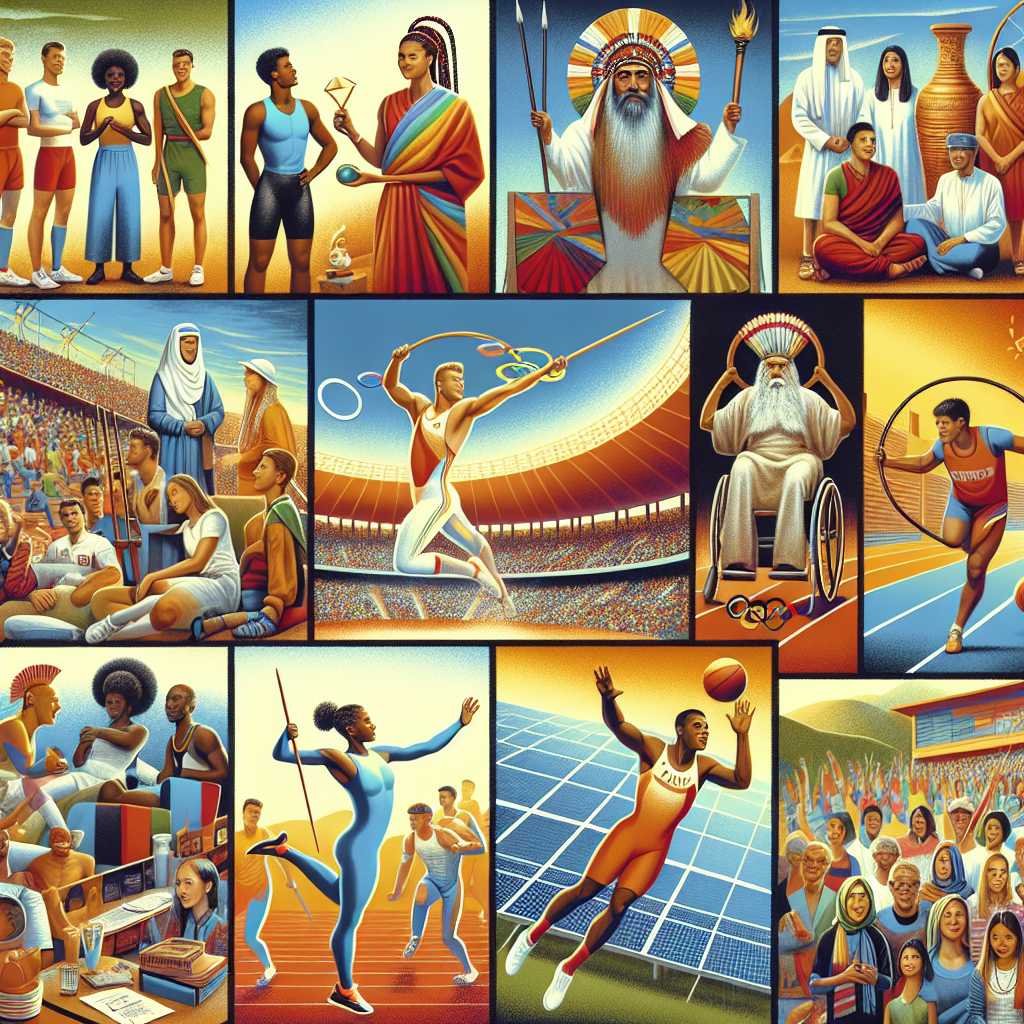The Evolution and Impact of the Olympics: Continual Transformation on the World Stage
The Olympics, a time-honored tradition with origins reaching back to ancient Greece, continuously evolve and break new ground with each iteration. From introducing new sports to technological reforms and gender equality, the Olympic Games have gone through myriad changes. This has made them not only a forum for athletic excellence but also a platform for social progress and global unity.
Historical Overview of the Olympics: A Journey Through Time
In understanding the evolutionary journey of the Olympics, it’s essential to glimpse into its storied beginnings. The ancient Olympic Games were held from 776 BC to 393 AD in Olympia, Greece. They featured various contests of strength, speed, and skill within a religious and festive atmosphere. However, political reasons led to their falling out of favor until their revival in the modern era.
It wasn’t until April 6, 1896, that the first modern Olympic Games took place in Athens, Greece, thanks to efforts by Baron Pierre de Coubertin. Every four years since then (with exceptions during the World Wars), athletes have gathered from around the world to compete, representing the cornerstone idea of “Citius, Altius, Fortius” – faster, higher, stronger.
Breaking Ground in Sports: Inclusion and Advancements
One of the most observable areas where the Olympics are always breaking new is in sports inclusion. With each edition of the Games, new sports make their debut or are reintroduced after a period of absence. This evolution keeps the event fresh and engages new audiences. It also allows athletes in emerging disciplines an arena to showcase their talent to a global audience. Notably, recent Games witnessed the introduction of sports like karate, sport climbing, skateboarding, and surfing.
Technological advancements have also transformed how competitions are officiated and viewed. Innovations such as photo finish cameras, instant replay, wearable technology, and even doping tests continue to mold the integrity and viewing experience of Olympians’ feats.
Breakthroughs for Gender Equality and Diversity
Gender equality and diversity have become central themes within the Olympic movement’s evolution. Where once female athletes had limited participation opportunities in early modern games, there’s been a determined push for equal inclusion. The International Olympic Committee (IOC) ongoing efforts have culminated in an almost equal number of male and female athletes participating recently. Likewise, athletes from a broad spectrum of nations can now capture the world’s attention on an equal playing field.
Furthermore, openly LGBT+ competitors and athletes with disabilities finding representation in Paralympic events are prominent examples depicting social barriers burrowing in alignment with Olympic ideals.
Economic Impact and Sustainability
Every host city hopes to leverage the Olympic Games’ prestige for economic gain – building infrastructure, boosting tourism, and creating jobs. But interplaying with this traditional perspective is the increasing importance placed on sustainability. Cities now undertake significant strides toward minimizing environmental impact, aiming for energy-efficient infrastructure and reducing carbon footprints.
Progresses like Rio 2016’s focus on converting venues into public spaces post-Games and Tokyo 2020’s use of recyclable materials for constructing medals reflect a larger trend towards innovative and sustainable approaches reflecting societal values on environmental consciousness.
Shaping Global Sociopolitical Dynamics: A Catalyst Beyond Sports
Olympics breaking assume another dimension when cross-examined against their influence on global political dynamics. Notably, there have been instances where international relations or domestic policies received profound impacts from events surrounding or decisions taken related to the Games – be it boycotts during the Cold War or proclamations promoting peace amid conflict.
Critiques surrounding human rights violations in host countries or concerns related to costs vs benefits add further complexity but also highlight how significantly the Games could prompt policy considerations or catalyze discussions fundamental to human coexistence beyond pure athleticism.
Future Prospects: Looking Ahead To Paris 2024 And Beyond
As we look towards future games like Paris 2024 or Los Angeles 2028, what manner of Olympic breaching will we witness? Starting from emerging athletic disciplines to potentially groundbreaking technological applications advancing green Olympics ideals or democratizing participation through digitalization; possibilities that could redefine what it means to witness or be part of an Olympian spectacle.
Notes
Image description: A dynamic montage displaying images from several Olympic events with historical moments such as ancient sports juxtaposed with shots from modern ceremonies, showcasing both diversity among athletes and sustainable practices like solar panels on stadia roofs.
